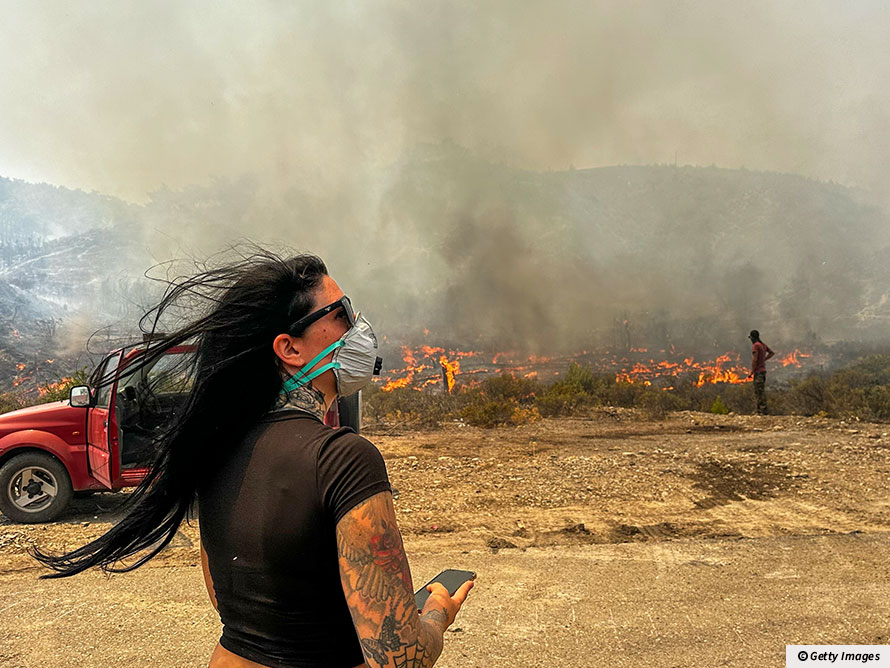Are humans naturally complacent? Even as several Greek islands caught fire this week, tourists continued to land on them. Some think we just cannot process the scale of the crisis.
10,000 climate records broken in one month
 Like wildfire: 19,000 people have been evacuated on the Greek island of Rhodes.
Like wildfire: 19,000 people have been evacuated on the Greek island of Rhodes. Glossary
Rhodes - A large Greek island known for both its ancient ruins and beach resorts.
Complacency - Feeling of satisfaction with your own work that stops you from trying harder.
Conceptualise - Form an idea of how something works in your mind.
Fossil fuels - Fuels made from decomposing plants and animals, including coal, natural gas and oil. These fuels release carbon dioxide, causing global warming.
